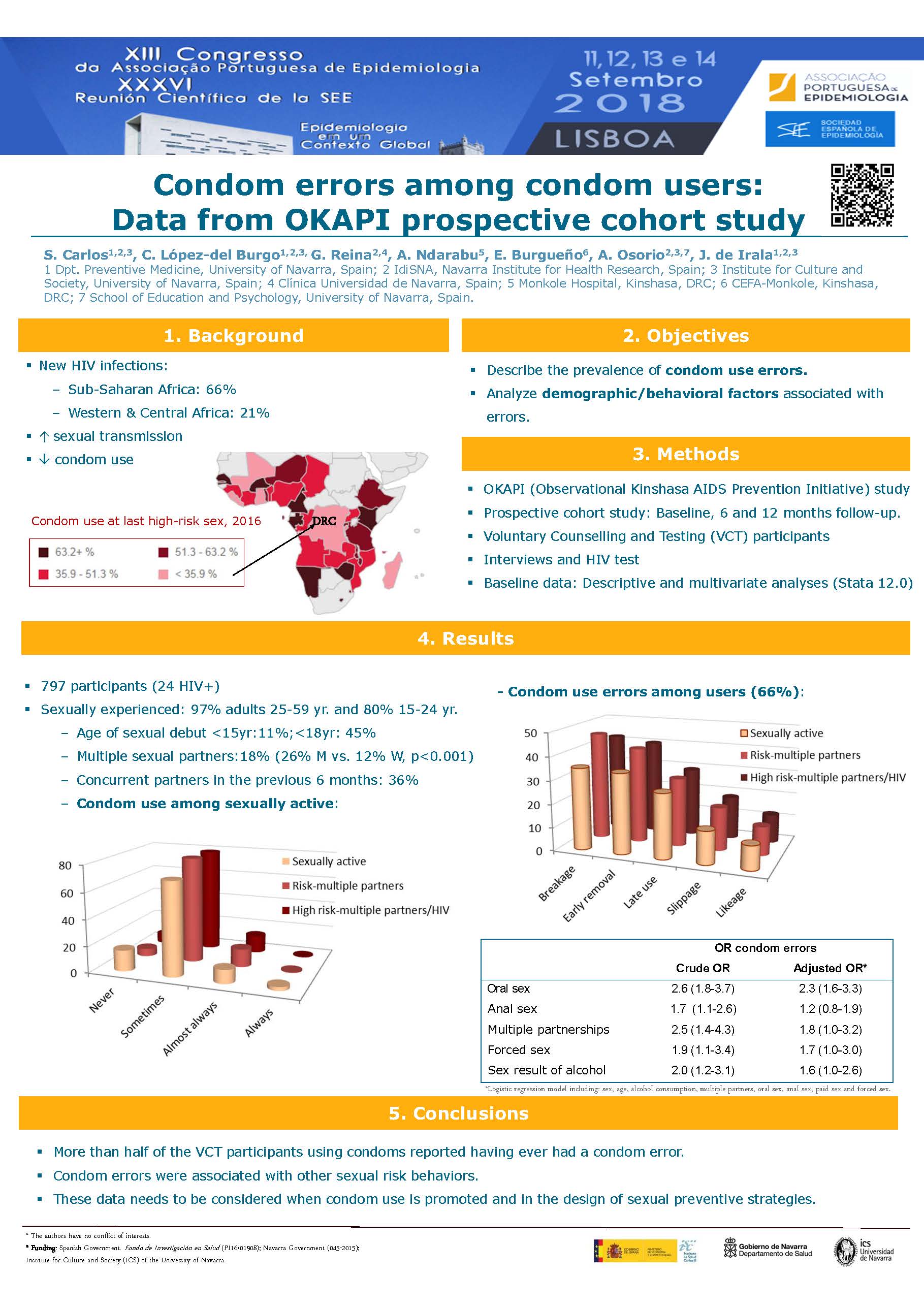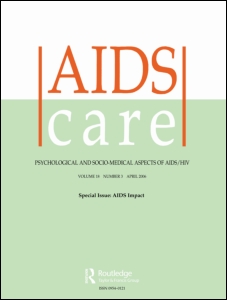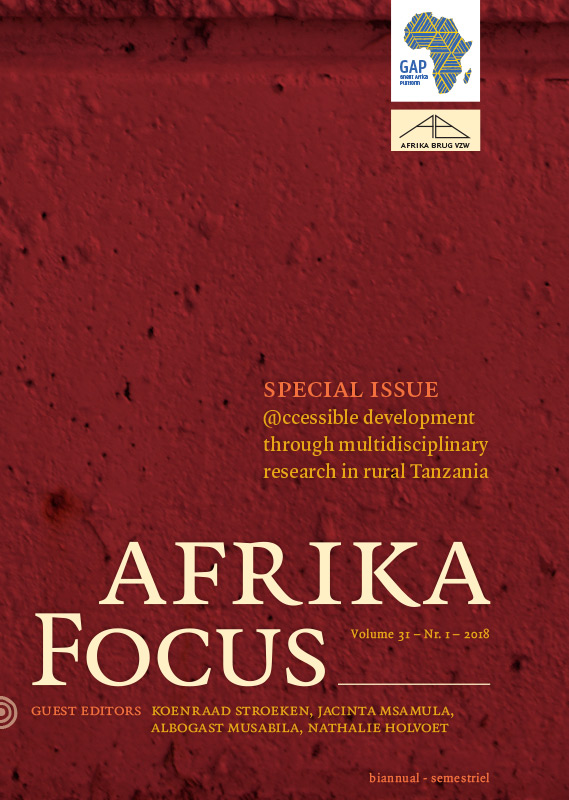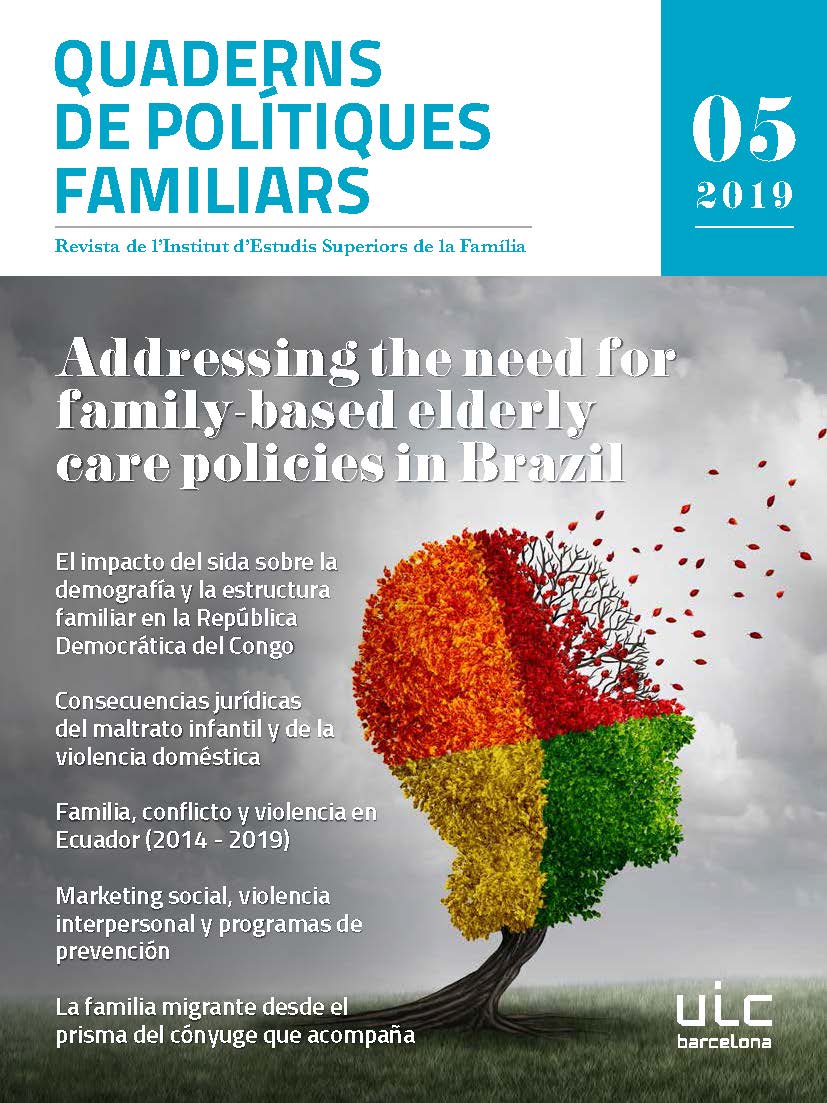Resumen
ANTECEDENTES: Although there has been an important decline in HIV infections in many Sub-Saharan African (SSA) countries, 43% of the new HIV infections worldwide still take place in this region and sexual behaviors are the main risk factors. Different preventive behavioral strategies can avoid or reduce risks: avoidance of early or casual sex, mutual monogamy, reduction of the number of sexual partners, male circumcision or consistent and correct condom use. Regarding condoms, consistent use in SSA is scarce and misuse frequent. In this study we aimed to analyze the prevalence of condom use errors and the associated sociodemographic and behavioral factors among HIV Voluntary Counseling and Testing (VCT) attendees in Kinshasa (D.R.Congo). METODOS: OKAPI (Observational Kinshasa AIDS Prevention Initiative) prospective cohort study evaluates the impact of the VCT on changes in HIV-related knowledge and sexual behaviors after 6 and 12-months. Since April 2016 until February 2018, 655 participants aged 15-59 have been HIV tested (19 HIV+) and have replied to the baseline interview. Follow-up has not finished yet. Descriptive and multivariate analyses have been done with baseline data (Stata 12.0).
RESULTADOS: Most participants had had sexual relationships (97% adults and 81% aged 15-24 yr, p<0.001), 44% had sex before 18 and 11% before 15. Eighteen percent of participants had multiple sexual partners at baseline (24% of men and 13% of women, p=0.002; 20% of adults and 12% of youth, p=0.012) and 36% had had concurrent partners in the previous 6 months. Regarding condom use, 85% had ever used a condom but only 2% `always´ used it. Among users 37% had had =2 errors and 58% had at least 1 condom use error: 41% late use, 41% early removal, 39% breakage, 13% slippage and 10% leakage. Condoms errors were associated with reporting anal sex (OR=1.9, 95%CI: 1.1-3.1), oral sex (OR=4.1,95% CI: 2.9-5.9), multiple partnerships (OR=1.9, 95%CI: 1.0-3.7), forced sex (OR=2.1, 95%CI: 1.1-3.7) and sex as a result of alcohol (OR=2.6, 95%CI: 1.5-4.5).
CONCLUSIONES: More than half of the VCT participants using condoms reported having ever had a condom error and this was associated with other sexual risk behaviors. These data needs to be considered when condom use is promoted and in the design of sexual preventive strategies.






